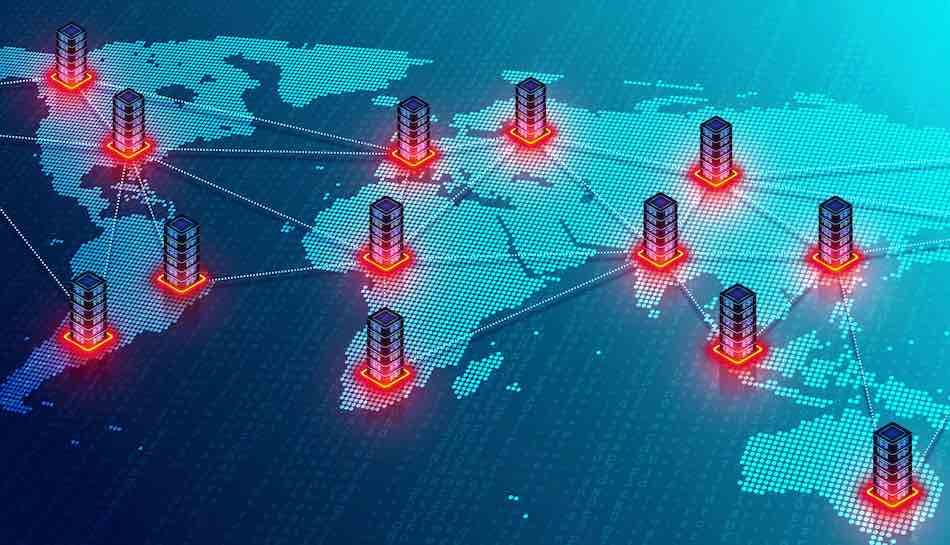
In the first quarter of 2024, Cloudflare's defense mechanisms successfully mitigated a staggering 4.5 million DDoS attacks, marking a 50% increase year-over-year.
This surge is outlined in the latest edition of Cloudflare’s DDoS threat report, which provides a comprehensive view of the current threat landscape based on data collected from their extensive network.
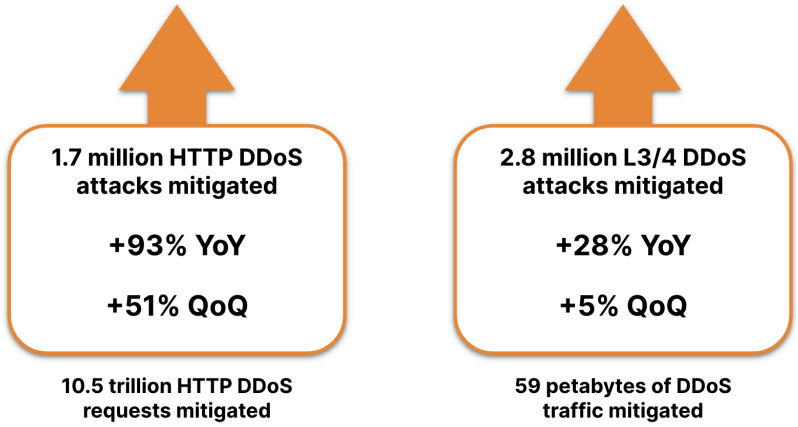
Key Insights
The report states a significant increase in the volume of DDoS attacks, with Cloudflare mitigating 32% of the total attacks of 2023 just in the first quarter of 2024.
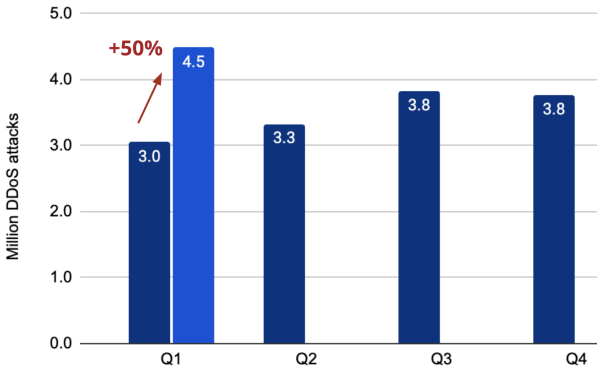
There was a notable rise in DNS-based DDoS attacks, which grew by 80% compared to the previous year, solidifying its position as the most prominent attack vector.
HTTP DDoS attacks also saw a sharp rise by 93% year-over-year.

Sweden experienced a 466% increase in DDoS attacks, likely tied to its recent NATO accession. The most targeted sectors varied by region, with the Gaming and Gambling industry and the Information Technology and Internet sector facing the most significant threats.
Notable Attack Vectors
A significant threat came from a Mirai-variant botnet that launched a 2 Tbps attack against an Asian hosting provider. Mirai, known for its powerful disruptions since 2016, remains a prevalent threat due to its publicly available source code and subsequent modifications.
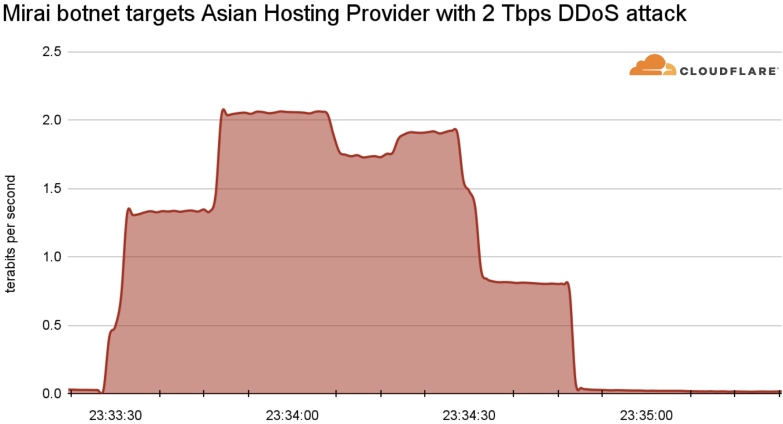
The report highlighted an alarming increase in Jenkins Flood attacks, growing by over 826% quarter-over-quarter. This vector exploits vulnerabilities in Jenkins automation servers that were supposed to be mitigated in earlier patches.
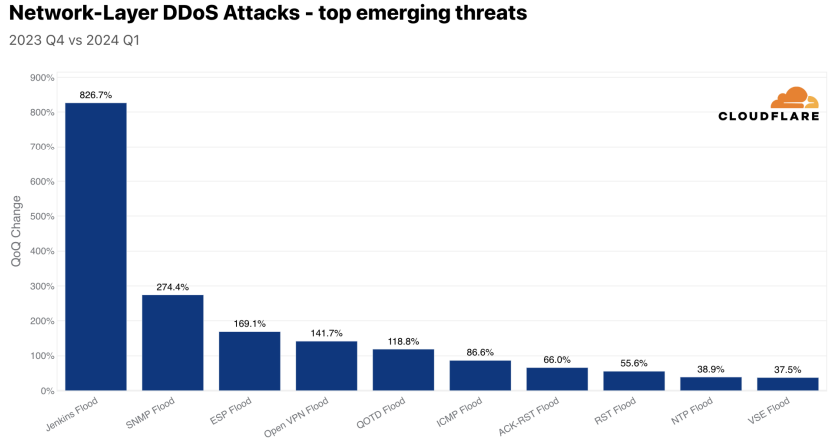
A new vulnerability in HTTP/2, reported by researcher Bartek Nowotarski, was identified, potentially leading to severe disruptions including out-of-memory crashes and CPU exhaustion.
Global Impact
Cloudflare’s report also sheds light on the geographical distribution of both sources and targets of attacks:
- The United States and China were the leading sources of HTTP DDoS attacks.
- On a normalized basis, small nations like Gibraltar and Saint Helena showed disproportionately high levels of attack traffic, revealing a complex global pattern of DDoS activities.
Defense Strategies
The 2024 Q1 findings underscore the evolving and escalating nature of DDoS threats. Cloudflare continues to enhance its defenses, notably with the introduction of the Advanced DNS Protection system to combat sophisticated DNS-based attacks.
For organizations, the ongoing sophistication of attacks signifies the critical need for robust cybersecurity strategies and comprehensive protection solutions like those provided by Cloudflare.
For further insights and detailed data on specific countries, industries, and networks, the full report is accessible on Cloudflare’s blog.







Leave a Reply